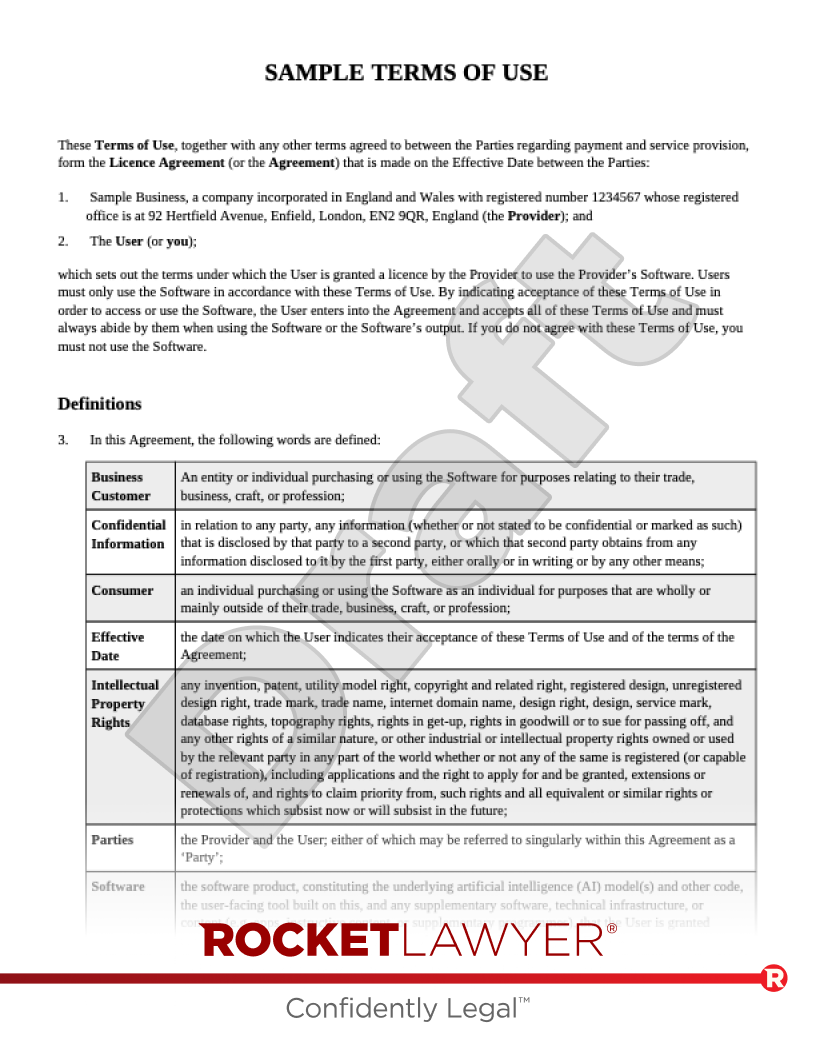What is a software licence?
Software is a type of intellectual property (IP) that is often protected by copyright law. As such, when you buy software, it usually comes with a software licence.
A software licence is an agreement between a software developer or publisher (ie the copyright owner) and you (ie the end-user), which grants you permission to use or distribute the developer’s software. It usually includes terms on how the software can and can’t be used and on the agreement’s duration. Some agreements may also include terms on who can use the software, eg individual non-commercial users or businesses.
Without a licence, your use of software may constitute a breach of its developer’s IP rights.
Why is it important to choose the correct software licences for my business?
Choosing the appropriate licence agreement for your business can help save costs by:
-
ensuring that you have the right number of licences for your business, so you don’t have to spend more later to purchase additional individual licences (eg by buying a licence that allows an adequate number of employees to use the software), and
-
by saving your business from potential litigation in the future, such as could occur if you obtain too few licences but use the software for more people than you have licences for
What different types of software licence are there?
There are 3 main types of end-user licence agreements:
-
a single-user licence - this only allows the programme to be installed on one device
-
a volume or multi-user licence - this allows the programme to be installed and used simultaneously on various devices. A maximum number of users is usually prescribed
-
site licences - these allow anyone at a certain location (eg a business’ premises) to use the programme
When you sign up for a software trial, you’ll usually receive a trial licence, which expires by the end of the trial period.
How do I choose the right type of licence for my business?
When purchasing software, you should consider:
-
its purpose (ie how will you use it?)
-
who will be using it
-
how many devices it will have to be installed on
If your business has less than 5 employees, it may be more appropriate to purchase one or more single-user licences. Where your business has more than 5 employees, obtaining a multi-user licence or a site licence may be more economical. Ultimately, however, deciding on the correct licence for your business based on the number of required users depends on the different prices you’re offered for single-user and for multi-user licences.
You should also make sure that you purchase a licence that permits the programme to be used in a business setting.
You must also pay attention to the terms of the licence so that you understand the full extent of your rights and any conditions attached to your use of the software. For example, some licences may require you to pay monthly subscriptio fees or to renew your licence annually. Certain licences may also require you to purchase a new licence after exceeding a specific number of installations. Make sure any terms in a licence you choose are appropriate for how you run your business.
What happens if I use unlicensed software or breach licensing terms?
Using unlicensed software or breaking the terms of a licence is considered software piracy. Unlicensed copying or selling, for example, can constitute a criminal offence under the Copyright, Designs and Patents Act 1988. If convicted, you may be subject to fines or imprisonment. Civil litigation for copyright infringement may also be brought by the business whose IP you infringed by using, purchasing, downloading, or using a software product outside the terms of its licence.
You should also be mindful that software often has piracy detection built-in. If activated, it may report you or disable key features. Your employees can also anonymously report you to the Federation Against Software Theft or the Business Software Alliance.
For more information, read How to avoid copyright infringement.
How do I ensure the legitimacy of the software I purchase?
You should only buy software from reputable sources to reduce the chances of purchasing software that has been unlawfully copied or otherwise distributed outside of the terms of a licence agreement.
Indicators that software may be illegal include:
-
it’s sold at a much cheaper price than its regular market price
-
it isn’t in English or the printing on its packaging is poor
-
the certificate of authenticity or licence document is missing
If in doubt, you can check the product’s licence number with the software developer or publisher.
If your business uses a lot of different software products, it can be prudent to appoint someone within your business to manage your software products and licences. Their approval should be obtained before the purchase or installation of any software. It may also be useful to prohibit your employees from downloading non-company approved software on their work devices.




